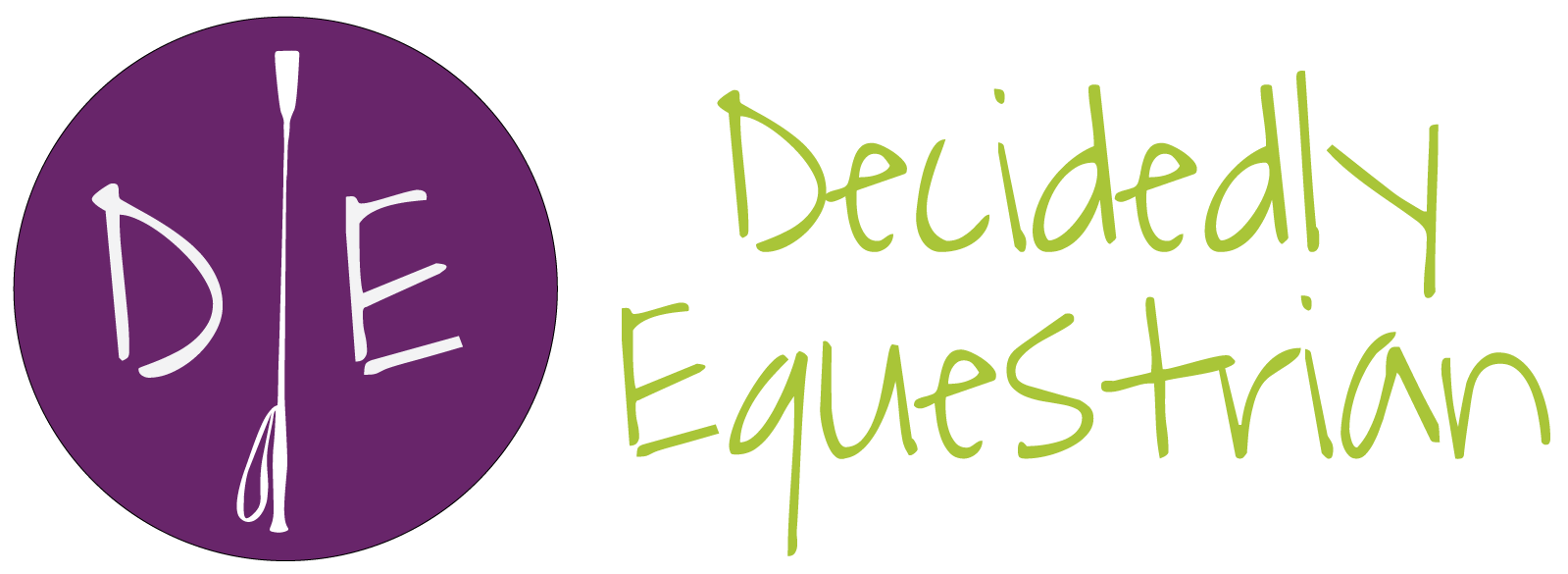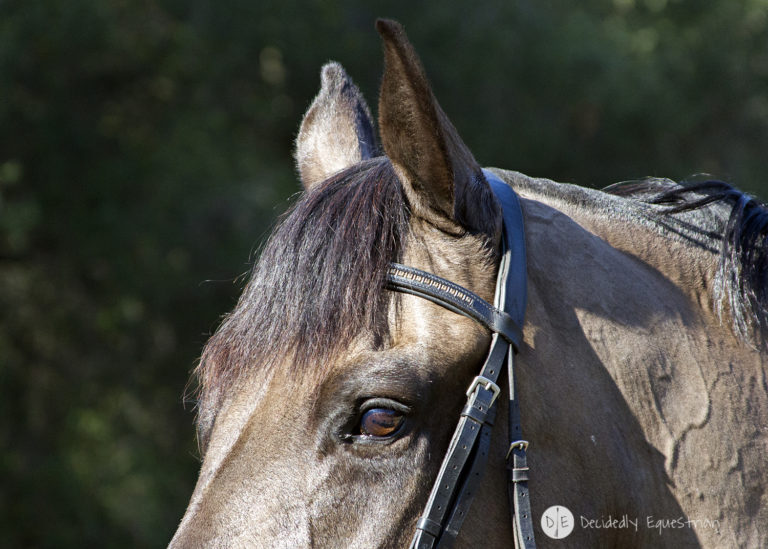I have taken thousands of lessons and clinics at this point of my horse journey which has lasted just under a decade now. In my journey towards my 10,000 hours (of riding) I’m sitting somewhere around 3,000 -4,000 hours of riding to my best guesstimate. Hard to say exactly. Either way…I’m not even HALF way to that excellence mark in 9 years. Intimidating.
Despite that, I’ve managed some pretty awesome growth as a rider. I started out unable to post the trot without major flapping chicken arms (sometimes this still haunts me), but with a very sticky butt. I have ridden ancient lessons horses, brand new off the track thoroughbreds and high level sport horses. I have reached the capability level at this point of completing a 4th level test with a 66% and a PSG at a 56% (I actually reached that goal in less than 8 years since my first lesson). I’ve experienced reining horses, western pleasure horses, barrel racers, trail riding, dressage, some jumping, and dozens of different breeds and hundreds of individual horses. I have watched hundreds of lessons and clinics being given to other people.
I’m not trying to sound braggy…I’m just giving an example of what can be done…and there are plenty of people that have learned quicker than I have. But…I know riders that have ridden thousands of hours more than I have, that are still struggling with low level stuff. Why? Sometimes it’s Fear. Fear is one good valid reason…and I’m not going to address that today. I am not an expert on fear and if fear is what is hurting you, you need to talk to your trainer about it and maybe a therapist. Personally, I’m not without fear…but my way of dealing with it has always been “don’t do anything exceptionally stupid (which is a different bar for everyone), remember fear is an emotion and can be controlled, remember nothing worth doing isn’t a little scary, and being of the mindset that if I’m going to die…going by horse isn’t the worst way to go.”
But the real thing that is holding back many riders is this…the ability to be a good student. Sadly not everyone is a good student…but we can make an effort to be.
I have seen dozens of people get mad in their lessons. Mad at their horses. Mad at their trainers. Mad at themselves. There’s one thing being frustrated because you’re having a bad day. It’s another thing to be like this all the time. I have watched lessons that made me cringe. I have watched trainers tell their students to dismount and go back to the barn 15 minutes into their lesson. I have have watched riders cry. I have watched horses being unfairly punished. I have watched lessons that were literally nothing but an ego stroke as the trainer felt there was no other option than telling the person undeservedly how well they were doing. I’ve seen a lot of wild things going on in lessons. But there are things you can do. Things that can be changed if you’re prone to being a little bit more difficult of a student (we all have things to work on…let me tell you…I’ve been there done that with a lot of these). Here are your rules for getting your riding under control so you can start improving in leaps and bounds instead of one step forward…two steps back.
Rule #1 – Drop your Ego/Perfectionism/Need for Approval at the arena gate.
Your lessons are for making mistakes, having your trainer point them out, and working to fix them or improve them. If you’re going into your lesson looking for some sort of approval or perfection…you might as well stay in the barn. That’s not what lessons are for. It’s just like science…you come up with a theory…test it…fail…adjust…fail…adjust…succeed. There is no success without failure. I go into every lesson thinking “okay what was shit this week that I want my trainer to see?” and then I try and replicate the shit so she can see it and fix it. Seriously though…ego can be a learning killer…I’m 30 lbs over my normal weight, look like a cow on a horse right now, and feel incapable a lot…but I don’t let it stop me. I still work to make improvements even though I’m not pretty on a horse right now and I absolutely am not as effective as I am when I’m not carrying about postpartum nonsense. I’m NOT letting that affect my riding or my lessons. I’m not there for approval or to feel like a supermodel on a horse. I’m there to learn. I’m not going to lie there aren’t times I look at myself in the mirror riding by and want to just dismount…but I keep going.
Rule #2 – Listen to your trainer and react fast.
I understand sometimes you don’t hear instructions or understand exactly what your trainer says (in that case…stop and ask for clarification), but not listening to what your trainer is telling you to do is one way to guarantee you will never improve. Reacting slow sometimes makes you miss an opportunity to achieve something if your horse is ready in that moment…so keep on it with your reaction time. I’m terrible at this…partially due to a hearing issue…but also because a lot of times when I’m riding I am so focused on what I’m feeling and making adjustments that what she says doesn’t always sink in all the way. I always try to react and respond to what I think her instructions were…and it’s now always the right thing. But I don’t beat myself up about that too much. I will also admit sometimes I just don’t understand the instructions and have to stop and ask for clarification. Sometimes brains can be dense…lol.
Also…if you think your trainer doesn’t know what she’s talking about…check that you’re not breaking Rule #1 …and if you’re not…find another trainer you believe in their abilities. In the same vein…if your trainer tells you to twist your torso, lower your hands, shift your weight, etc…overdo it. Just because you feel like you’re doing just that, you’re probably not. Your body gets into habits riding wrong. It may feel like your rotating in…but you’re actually rotating out. You have to fix your body’s understanding of what is happening. Your trainer is not lying to you. He or She is trying to help you.
Rule #3 – Know when to Stop for the Day but don’t be Lazy.
If you have learned a big lesson or had a big breakthrough or your horse has learned a big lesson…stop. Don’t keep drilling it after your trainer says it’s enough (I have seen people continue to work and work after the trainer has dismissed them from the lesson and said “good job.” Reward your horse and yourself and let it sink in. Sometimes I stop early and just chat with my trainer. Sometimes I chat with my trainer before we start. I understand that I’m losing riding time that way, but my chatter usually also has a point. To ask questions. To discuss issues we are having. To discuss plans for upcoming shows. Whatever. You don’t ALWAYS need to use your full lesson time riding forward…but make sure you’re not just avoiding riding.
Rule #4 – Don’t beat Yourself (or your Horse) up.
This one is similar to #3, but happens more after lack of success and breakthrough. Just because something isn’t going the way you want doesn’t mean you need to keep drilling over and over again. You’ll burn yourself out, burn your horse out or injure your horse. Take the small victories…or just don’t end up in major defeat. Every ride doesn’t have to end in some grand victory. Sometimes doing something just okay is the best you’re going to get that day. It’s okay.
Rule #5 – Do your homework.
This of course refers to going and practicing what you learned that week. If you don’t repeat your learning before your next lesson, it won’t stick. This also refers to going home and doing work out of the saddle. Stretch. Do strength training to balance your crookedness. Watch educational videos. Read articles and books about what you’re working on. These “outside lesson” learning sessions I think are just as important as your lessons. Not only will you mentally back up what your trainer is teaching you, a lot of times you’ll come across discoveries yourself you can discuss with your trainer to see if those things might work for you or be something that would be worth working on. Outside homework is indispensable.
Rule #6 – Don’t hide stuff from your Instructor.
If something hurts, tell her. If you are scared…tell her. Seriously…hiding things from her only hurts you.
Rule #7 – Have Self Discipline and have Goals.
Seriously…your trainer can’t do this for you. Without either, it’s going to be hard to progress. Enough said. If you don’t have either…why are you taking lessons to begin with? Figure that out and you’ll have some answers.
Rule #8 – Insanity is trying the same thing over and over again and expecting different results.
If something isn’t working for your horse, don’t keep doing it. Your trainer is going to give you instructions on how to adjust and try to fix things, but sometimes you can experiment yourself too and let your trainer know what you’re doing and why. Your trainer knows a lot, but if he or she isn’t on the horse in the moment, he can only guess to how it is feeling. Sometimes the visual and the feel of the horse don’t coincide. So don’t be afraid to try something new. It’s okay if it doesn’t work.
So those are my tips for improving your riding and getting the most out of your lessons with your trainer. Remember that you hired them to teach you, they want to help you and you shouldn’t be too hard on yourself or your horse…but keep disciplined at the same time. It’s a fine balance!
What is your biggest challenge when it comes to learning/taking instruction?

